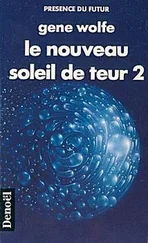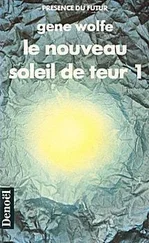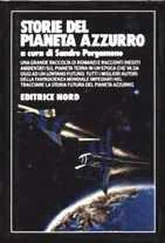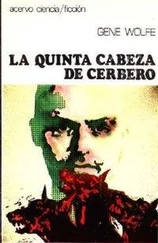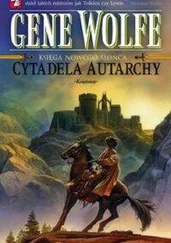Gene Wolfe - There Are Doors
Здесь есть возможность читать онлайн «Gene Wolfe - There Are Doors» весь текст электронной книги совершенно бесплатно (целиком полную версию без сокращений). В некоторых случаях можно слушать аудио, скачать через торрент в формате fb2 и присутствует краткое содержание. Жанр: Фантастика и фэнтези, на английском языке. Описание произведения, (предисловие) а так же отзывы посетителей доступны на портале библиотеки ЛибКат.
- Название:There Are Doors
- Автор:
- Жанр:
- Год:неизвестен
- ISBN:нет данных
- Рейтинг книги:4 / 5. Голосов: 1
-
Избранное:Добавить в избранное
- Отзывы:
-
Ваша оценка:
- 80
- 1
- 2
- 3
- 4
- 5
There Are Doors: краткое содержание, описание и аннотация
Предлагаем к чтению аннотацию, описание, краткое содержание или предисловие (зависит от того, что написал сам автор книги «There Are Doors»). Если вы не нашли необходимую информацию о книге — напишите в комментариях, мы постараемся отыскать её.
There Are Doors — читать онлайн бесплатно полную книгу (весь текст) целиком
Ниже представлен текст книги, разбитый по страницам. Система сохранения места последней прочитанной страницы, позволяет с удобством читать онлайн бесплатно книгу «There Are Doors», без необходимости каждый раз заново искать на чём Вы остановились. Поставьте закладку, и сможете в любой момент перейти на страницу, на которой закончили чтение.
Интервал:
Закладка:
The built-in cabinet in the living room held half a bottle of rum. He could not recall buying it and thought it might have been left by another tenant, but it reminded him of the captain he had been for one night, and the captain’s desk. He stirred an inch of rum into the mug of instant he prepared for himself, on top of the cream and sugar.
The carton was tied with heavy cord. He carried his coffee back into the kitchen, got out the large knife he sometimes used to slice onions, and sharpened it.
For a moment he waited, fingering the edge, sipping his rum and coffee, smiling a little. There was a pleasant excitement in not knowing what might be in the carton or even if it was his at all. The custodian was old and might easily (he told himself) have fastened his tag on the wrong container. He looked through his tape collection for an appropriate one to put on the stereo, and settled in the end for The Music of Christmas, moved by a dim recollection of opening boxes beneath the tree as a child. Soon, very soon, the store would play carols all the time, and he would join the other retail-sales associates in complaining about them; but tonight it seemed to him that he should listen to Christmas now, that he should hear it again before the store destroyed it, with everything it had once meant.
Adeste, fideles,
Laeti triumphantes;
Venite, venite in Bethlehem.
He cut the string and flipped back the cardboard flaps. A thick sweater-vest lay on top. He picked it up and admired it; it was of that light brownish tan they called camel, thick and soft, with a V-neck and buttons up the front—just the thing, he told himself, to keep the wind from his chest while he waited for the bus. As he searched it for its labels, he congratulated himself on remembering these things.
It was a Medium, which should fit him well. A second label announced that it was one hundred percent virgin wool, that it should be dry-cleaned only, and that it had been made in Toronto—that would be Canada, he thought. He carried it to the closet and hung it with his topcoat and jacket.
When he had pulled the sweater from the carton, he had been careful not to look at the next item. Now he rubbed his hands in anticipation as he returned to it for his second discovery.
It was a pair of gloves, gloves of soft dark leather lined with fur. Never worn—the store’s price-tag still dangled from the plastic cord that bound the two together. He cut it, pulled them on, and punched the air, although he had never boxed. They fit him perfectly, and he imagined himself playing the piano in them, although he could not really play the piano. The stereo had launched into Silent Night; he accompanied it on a magical instrument that always put the right keys under his fingers. It would be useless to put the gloves in the pockets of his topcoat, since he was hoping for a warmer coat from the carton. After considering the matter, he pulled them off and put them on the bar of the hanger that held his jacket.
Next was a long, knit muffler of bark brown, and under it the overcoat he had remembered. He took them from the carton, thrust his arms in the wide sleeves of the coat, and wound the muffler about his neck. Both seemed to exude palpable warmth. He went into his bedroom and stood before the mirror to button the overcoat, which fit just loosely enough for him to be sure it would be perfect with a jacket under it. While feeling its thickly napped material with his hands, he discovered that there was something in one of the side pockets.
It was a map. Too warm already, he took off the coat and laid it on his bed, seated himself beside it, and opened the map on his knees.
The area depicted seemed to be heavily forested and almost without roads, traversed mostly by narrow blue streams marked with rapid after rapid. Its highest elevation was Mt. Hieros; judging from its white center, Mt. Hieros was capped with snow. There was nothing to indicate where either the mapped tract or its mountain might be. Straggling letters stretching from one corner of the map to the opposite corner spelled OVERWOOD.
He shook his head, refolded the map, and tossed it onto his dresser for further study after dinner. He had not been to the Italian place in a long time. It had been conveniently near his old apartment—the neighborhood of his old apartment had returned to his mind vividly now—but it was ten blocks or more from this one, and he had not relished the walk. Now he found that he was not only hungry but eager to test his reclaimed winter clothing against the wind. He put on his second-best shoes, the sweater-vest, his jacket, and the gloves, added the muffler, and last of all wrapped himself in the long, dark overcoat.
Outside, the wind refused to cooperate. It had vanished with the daylight, leaving a clear cold night in which the air seemed to stand upon shelves of glass, like crystal goblets in Fine China. He hurried along admiring the ghostly plume of his own breath, his body warm, his cheeks nipped by frost.
Mama Capini was still there, and she remembered him, though he scarcely remembered her. She welcomed him back and presented him with a straw-cushioned bottle of Chianti on the house. He ordered lasagna, drank several glasses of the wine, and collided full-tilt with another patron as he was leaving.
The accident was only an embarrassment; he apologized, the stolid middle-aged man he had bumped told him to think nothing of it, and it was over. Yet it made him aware that there was something in the breast pocket of his overcoat, something long and hard and irregularly shaped. His first guess was that it was another bottle, his second that it was a gun; but it seemed oddly made for either. When he took off one glove and explored the object with his fingers, he felt fur, as though some small, unbending animal were standing on its hind legs in his breast pocket. In the glow of good food and wine it did not seem to matter.
The glow was largely gone by the time he had returned to his building, and he found he was as childishly anxious about the contents of the pocket as he had been about the contents of the carton. He laid the coat carefully on the sofa and stood what remained of the Chianti on the lowest shelf in the door of his refrigerator before he took out the oddly shaped object of which he had been so conscious on the walk home.
It was a doll. He carried it to the light to examine more closely; what he had thought fur was soft brown hair—real human hair, it seemed. Beneath the hair was a piquant face, at once beautiful and impertinent: a woman—a girl—with long legs and a slender waist, jutting breasts, rounded hips, and staring hazel eyes. She wore a belted, sleeveless smock of metallic green; it was her only garment, as he determined by an embarrassed glance.
Why had he owned such a thing? Or had he owned it at all? Although the coat and gloves had fit him, it seemed more than possible that they had not been his; he was of about average size, after all. He had never had a daughter, he felt certain. He had never even been married. Surely he would remember that.
No, how simple it was! He must have dated a divorcee. He had gotten the doll, probably in Toys at the employee discount, to give to her little girl; no doubt Christmas had been coming then, as it was coming now. Then he and this woman had broken off, and he had put away the coat without emptying its pockets.
He took the doll into his bedroom and laid it on the map—something else to think about later.
Much to his surprise, he did think about it later. Finding himself unable to follow the Midnight Movie, he brought the doll into the living room again and cradled it in his hands as though it were a child, haunted by the feeling that he too was on TV, that he owed his whole existence to some set playing to an empty room, that he and the doll were lost, were the lost children in the woods in the story his mother had let him watch when he was very small so long ago.
Читать дальшеИнтервал:
Закладка:
Похожие книги на «There Are Doors»
Представляем Вашему вниманию похожие книги на «There Are Doors» списком для выбора. Мы отобрали схожую по названию и смыслу литературу в надежде предоставить читателям больше вариантов отыскать новые, интересные, ещё непрочитанные произведения.
Обсуждение, отзывы о книге «There Are Doors» и просто собственные мнения читателей. Оставьте ваши комментарии, напишите, что Вы думаете о произведении, его смысле или главных героях. Укажите что конкретно понравилось, а что нет, и почему Вы так считаете.

